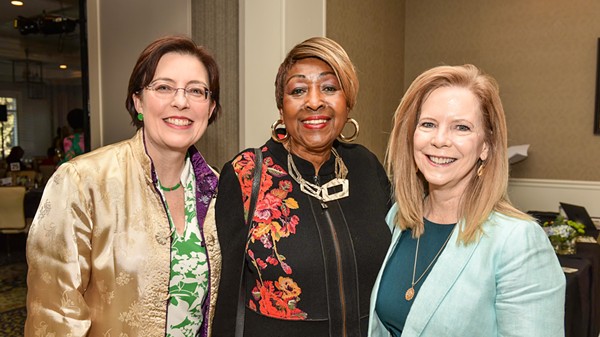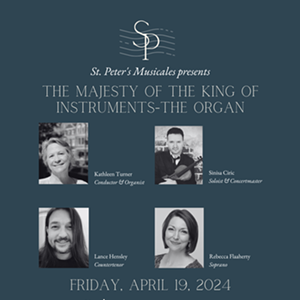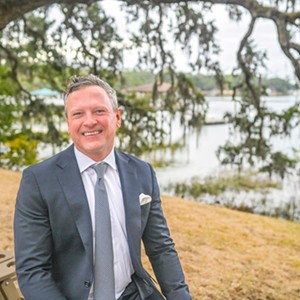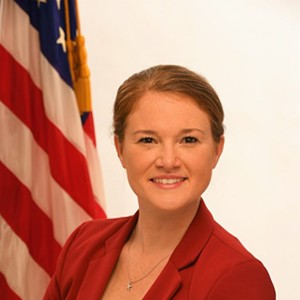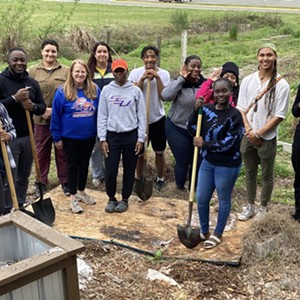Ben Hubby's prescription: 'more passion'
[
{
"name": "Air - MedRect Combo - Inline Content 1",
"component": "14680855",
"insertPoint": "7",
"requiredCountToDisplay": "5",
"parentWrapperClass": "fdn-ads-inline-content-block"
},{
"name": "Air - MedRect Combo - Inline Content 2",
"component": "14680856",
"insertPoint": "15",
"requiredCountToDisplay": "9",
"parentWrapperClass": "fdn-ads-inline-content-block"
},{
"name": "Air - SVP - Leaderboard - Inline Content - 2",
"component": "16852291",
"insertPoint": "10",
"requiredCountToDisplay": "10",
"parentWrapperClass": "fdn-ads-inline-content-block"
},{
"name": "Air - SVP - Leaderboard - Inline Content - 3",
"component": "16852292",
"insertPoint": "20",
"requiredCountToDisplay": "18",
"parentWrapperClass": "fdn-ads-inline-content-block"
},{
"name": "Air - SVP - Leaderboard - Inline Content - 1",
"component": "16852290",
"insertPoint": "25",
"requiredCountToDisplay": "22",
"parentWrapperClass": "fdn-ads-inline-content-block"
}
]
Seven months ago we were consumed. If not by Iraq, then by politics. We speculated, deliberated, debated. We spoke out. We put up bumper stickers, sought out yard signs, staked a position.
Some of us actually campaigned. Instead of reading the paper (and getting angry), listening to the radio (and talking back), sitting around (and complaining), we gave up a morning, an afternoon, a weekend to join with like-minded people to canvass for a cause.
It felt good, no matter the party affiliation. Better to be active than passive. Think globally, act locally.
Then we moved on to other things.
I doubt that will happen to Ben Hubby. For 40 days before the presidential election Hubby campaigned the old-fashioned way, going door to door, hitting nearly every registered voter in Chatham County.
With a group of eight to 12 hardcore compatriots -- three or four on any given day -- Hubby, an independent physician, wore out some shoe leather. Every afternoon, seven days a week, hed leave his practice or his southside home and hit the streets.
Its not the first time Hubbys put his politics on the line. In the early 60s he picketed the White House during the fight for Civil Rights. He volunteered to work for the poverty program in Mississippi in the early 70s. In 1980, he helped run Spencer Lawtons race for district attorney. And in 1991, he ran for Mayor.
Hes not about labels. He voted for Bob Dole against Bill Clinton. He endorsed Republican candidate and eventual winner, Susan Weiner, against John Rousakis.
He is about stating his case and mobilizing voters. But to this veteran activist, the hostility and animosity in the Bush-Kerry campaign was shocking.
A real eye-opener, says Hubby, wearing his trademark hat hooding his eyes, this time a faded blue, beaked cap from Amherst College.
I was surprised. I got obscene phone calls, doors slammed in my face and real negativity, especially in Windsor Forest. If war cant be debated during a presidential election, were in big trouble. This goes back to Abraham Lincoln, the Mexican War, the War of 1812. Wars have always been debated. But this time there was real Republican trickery, that love-her-or-leave-her mentality. To me, the war has nothing to do with backing the troops. The best way to back them is to bring them home or protect them better.
Hubby started the campaign in South Carolina for Howard Dean. He was impressed by Deans energy and strong dissenting voice and would not be surprised if Dean gave it another shot.
Kerry was challenging to work for.
Not a lot of fun, says Hubby, never mincing his words. He didnt make a strong enough argument against the war and didnt deal with the Swift Boat issue early enough. I would have preferred another candidate. He should do the country a favor and drop out of any future races. There are very few national statesmen now. John McCain is one. So is Lowell Weikert. But Im struggling with names. It wouldnt be John Kerry. We need a new crop of leaders.
Im attracted to Bill Richardson (D-NM). Hes a wonderful human being, but I think hes waiting in the wings to see what happens to Hillary.
Hubby grew up in Princeton, N.J., in a Republican family. He had a small boat he named Ike. But I think my father, who is 98, would agree when I ask, Where are all the speeches from the Pat Robertsons of the world about the morality of torture, about fairness?
Trained as a pediatrician, Hubby enlisted and served at Fort Carson in Colorado. After traveling around in a VW station wagon with his wife and two small children, Hubby visited Savannah.
In a serendipitous moment, he learned about an empty office at Hall and Habersham streets, which he rented. In 1975 Hubby started his practice.
Twenty years later, in an era of corporate takeovers, empire building and unwiedly and impersonal medical practices, Hubby is still an independent physician, one of a handful in town.
I cant be fired, he says. Only my patients can do that. Generations from now anthropologists will be coming around with a metal detector wondering about this breed, independent physician.
Savannahs air was polluted and stinky then, but Hubby, who lived downtown, liked the feel of the place. His daughters attended St. Vincents Academy, Clarys delivered sandwiches at lunch and fed ice cream sandwiches to Hubbys dog, Snowball.
It was a Saturday Evening Post upbringing, he says. There were artists, plumbers. Ive always liked a mix. Even now, I like talking to my right-wing drug representatives and Republican friends. Thats why I like Savannah.
But there was a seediness back then, a winking and nodding at wrongdoing in poor neighborhoods, a certain friendliness between city council and package liquor stores. There was crime.
I dont think weve ever really cleaned house, he says. We have not aggressively tasked our police to fight crime. The horses and bikes are just showcasing. I dont think any thoughtful person can say were being aggressive on crime. If Savannah wants to be a great city it has to tackle this problem. Politics interfered with the police department then and it still does.
People can sense when a town means business. Lets face it. Our police officers want to get home safe. They think, Why must I risk my life to a community going through the motions? Where are our local leaders? Wheres the Chamber of Commerce? I think they should be warning tourists of crime. Why arent we making the same demands of the police department as of the board of education? he asks.
Weve heard from the mayor about crime, but what about the voices from the white pulpits? This is everyones problem. We need to be our brothers keepers. We cant blame crime on poverty or black parents. Its corruption and drugs. We need people with more passion.
We need more shoe leather and longer memories. w
E-mail Jane at [email protected]/. To comment in a letter to the editor, e-mail us at
Some of us actually campaigned. Instead of reading the paper (and getting angry), listening to the radio (and talking back), sitting around (and complaining), we gave up a morning, an afternoon, a weekend to join with like-minded people to canvass for a cause.
It felt good, no matter the party affiliation. Better to be active than passive. Think globally, act locally.
Then we moved on to other things.
I doubt that will happen to Ben Hubby. For 40 days before the presidential election Hubby campaigned the old-fashioned way, going door to door, hitting nearly every registered voter in Chatham County.
With a group of eight to 12 hardcore compatriots -- three or four on any given day -- Hubby, an independent physician, wore out some shoe leather. Every afternoon, seven days a week, hed leave his practice or his southside home and hit the streets.
Its not the first time Hubbys put his politics on the line. In the early 60s he picketed the White House during the fight for Civil Rights. He volunteered to work for the poverty program in Mississippi in the early 70s. In 1980, he helped run Spencer Lawtons race for district attorney. And in 1991, he ran for Mayor.
Hes not about labels. He voted for Bob Dole against Bill Clinton. He endorsed Republican candidate and eventual winner, Susan Weiner, against John Rousakis.
He is about stating his case and mobilizing voters. But to this veteran activist, the hostility and animosity in the Bush-Kerry campaign was shocking.
A real eye-opener, says Hubby, wearing his trademark hat hooding his eyes, this time a faded blue, beaked cap from Amherst College.
I was surprised. I got obscene phone calls, doors slammed in my face and real negativity, especially in Windsor Forest. If war cant be debated during a presidential election, were in big trouble. This goes back to Abraham Lincoln, the Mexican War, the War of 1812. Wars have always been debated. But this time there was real Republican trickery, that love-her-or-leave-her mentality. To me, the war has nothing to do with backing the troops. The best way to back them is to bring them home or protect them better.
Hubby started the campaign in South Carolina for Howard Dean. He was impressed by Deans energy and strong dissenting voice and would not be surprised if Dean gave it another shot.
Kerry was challenging to work for.
Not a lot of fun, says Hubby, never mincing his words. He didnt make a strong enough argument against the war and didnt deal with the Swift Boat issue early enough. I would have preferred another candidate. He should do the country a favor and drop out of any future races. There are very few national statesmen now. John McCain is one. So is Lowell Weikert. But Im struggling with names. It wouldnt be John Kerry. We need a new crop of leaders.
Im attracted to Bill Richardson (D-NM). Hes a wonderful human being, but I think hes waiting in the wings to see what happens to Hillary.
Hubby grew up in Princeton, N.J., in a Republican family. He had a small boat he named Ike. But I think my father, who is 98, would agree when I ask, Where are all the speeches from the Pat Robertsons of the world about the morality of torture, about fairness?
Trained as a pediatrician, Hubby enlisted and served at Fort Carson in Colorado. After traveling around in a VW station wagon with his wife and two small children, Hubby visited Savannah.
In a serendipitous moment, he learned about an empty office at Hall and Habersham streets, which he rented. In 1975 Hubby started his practice.
Twenty years later, in an era of corporate takeovers, empire building and unwiedly and impersonal medical practices, Hubby is still an independent physician, one of a handful in town.
I cant be fired, he says. Only my patients can do that. Generations from now anthropologists will be coming around with a metal detector wondering about this breed, independent physician.
Savannahs air was polluted and stinky then, but Hubby, who lived downtown, liked the feel of the place. His daughters attended St. Vincents Academy, Clarys delivered sandwiches at lunch and fed ice cream sandwiches to Hubbys dog, Snowball.
It was a Saturday Evening Post upbringing, he says. There were artists, plumbers. Ive always liked a mix. Even now, I like talking to my right-wing drug representatives and Republican friends. Thats why I like Savannah.
But there was a seediness back then, a winking and nodding at wrongdoing in poor neighborhoods, a certain friendliness between city council and package liquor stores. There was crime.
I dont think weve ever really cleaned house, he says. We have not aggressively tasked our police to fight crime. The horses and bikes are just showcasing. I dont think any thoughtful person can say were being aggressive on crime. If Savannah wants to be a great city it has to tackle this problem. Politics interfered with the police department then and it still does.
People can sense when a town means business. Lets face it. Our police officers want to get home safe. They think, Why must I risk my life to a community going through the motions? Where are our local leaders? Wheres the Chamber of Commerce? I think they should be warning tourists of crime. Why arent we making the same demands of the police department as of the board of education? he asks.
Weve heard from the mayor about crime, but what about the voices from the white pulpits? This is everyones problem. We need to be our brothers keepers. We cant blame crime on poverty or black parents. Its corruption and drugs. We need people with more passion.
We need more shoe leather and longer memories. w
E-mail Jane at [email protected]/. To comment in a letter to the editor, e-mail us at











